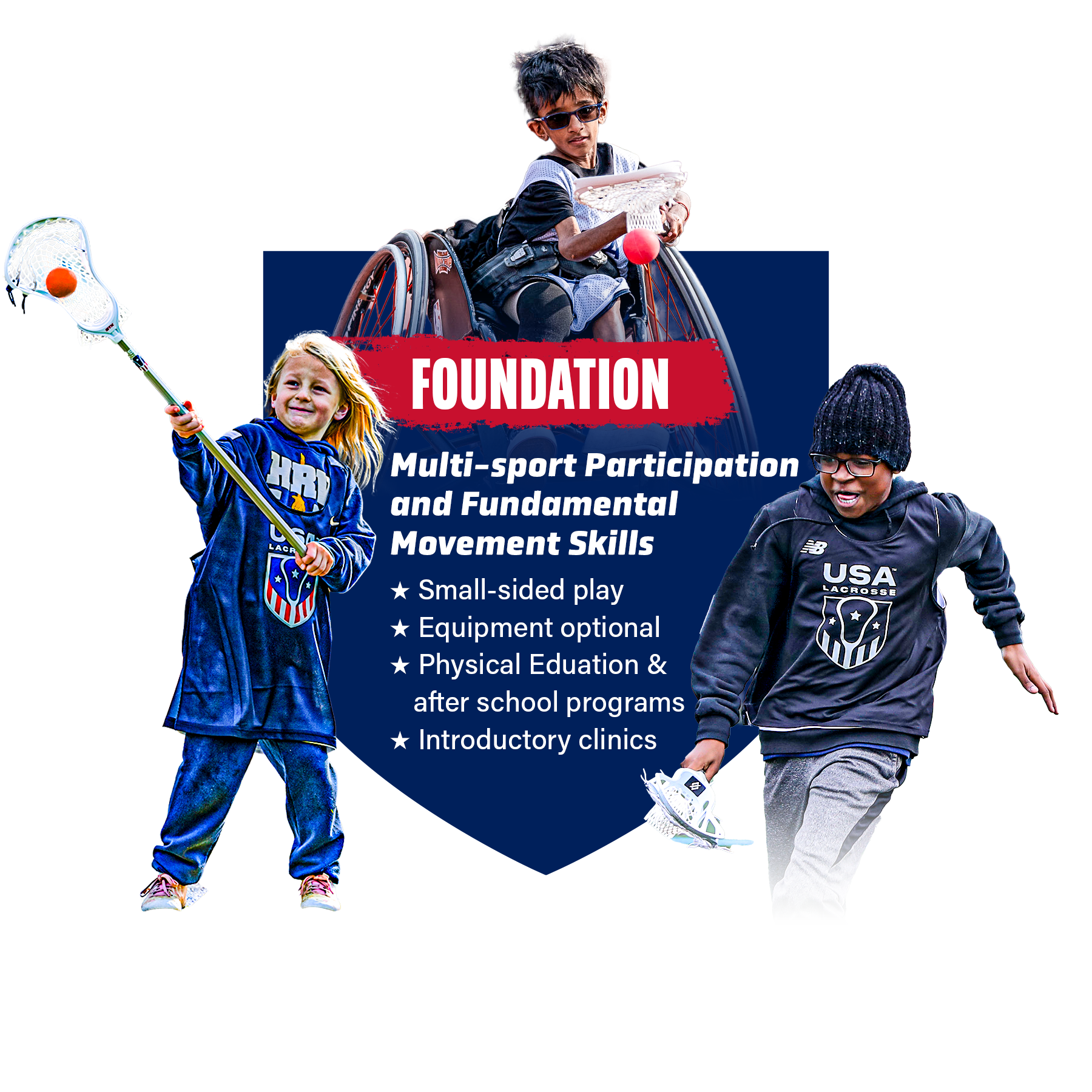Athlete Development Model
Building a Strong Foundation

Young players develop step-by-step, moving from basic movement to sport-specific skills. Parents and coaches help most by keeping it fun, positive, and active.
Ages 4–6: Foundation - Fundamental Movement Skills & Multi-sport Participation
Focus:
- Develop basic movement such as running, hopping, twisting, balancing, etc.
- Encourage lots of ball touches for comfort and confidence
Training Environment:
- Fun, relaxed, inclusive, and positive
- Short, varied activities and simple games
- Constant engagement with praise and encouragement
Player Development:
- Athletic: Running, balance, coordination
- Lacrosse Skills: Stick handling, scooping, cradling, throwing, and catching
- Tactics: Moving in space, stopping, starting, running to open areas
- Social/Emotional: Sharing, saying thank you, playing with friends, being a helper
- Cognitive: Clear, simple instructions with demos and repetition
Training Structure:
- Coach: player ratio - 8:1
- Sessions: 30–45 min, once per week, 8–10 weeks
- Format: small-sided games (3v3 to 6v6, no goalie)
- Encourage daily activity, gymnastics, tag, relay races, jumping games highly recommended
Ages 5–8: Foundation - Fundamental Movement Skills & Multi-sport Participation
Focus:
- Improve agility, balance, coordination, and speed
- Deeper focus on core lacrosse skills: protecting the stick while cradling, catching, passing, and dodging
Training Environment:
- Fun, engaging, and success oriented
- Predictable routines with emphasis on learning new skills and trying new things
- Effort is celebrated using fun games to reinforce skills
Player Development:
- Athletic: Skipping, hopping, flexibility, strength
- Lacrosse Skills: Changing hands, stick positioning, catching, passing and shooting on the run
- Tactics: Techniques and concepts introduced during 1v1 and 2v2 offense/defense; intro to 2v1
- Social/Emotional: Teamwork, cooperation, responsibility and helping other players
- Cognitive: Longer concentration periods, making choices, start to understand rules and solve problems
Training Structure:
- Coach: player ratio - 10:1
- Sessions: 45–60 min, twice a week, 8–12 weeks
- Training mix: 60% skills, 40% competition. Skill work is also always embedded into competition
- Encourage other sports 4–5 times per week, with breaks from organized sport throughout the year


